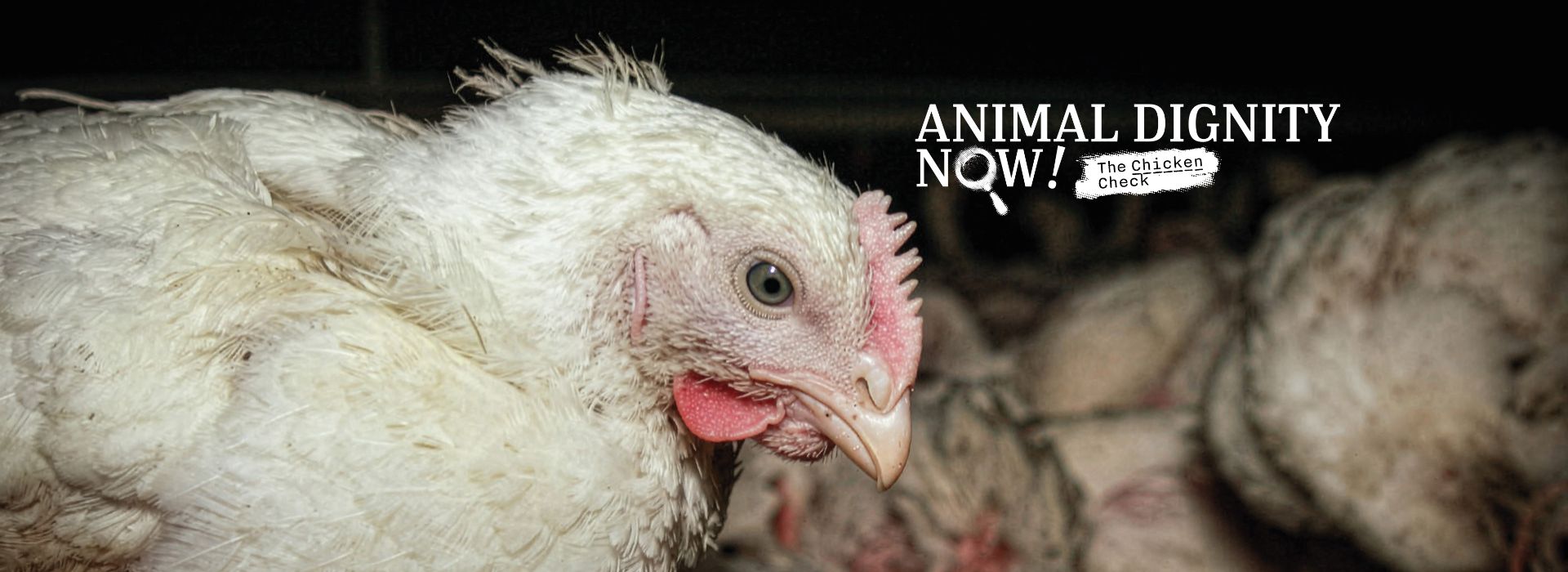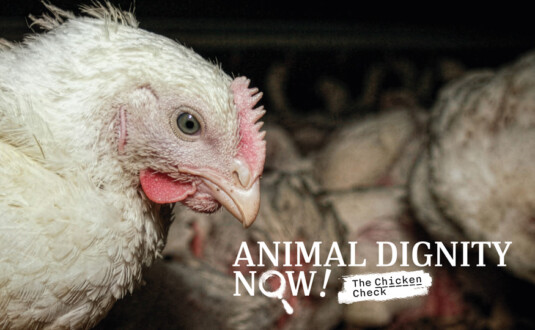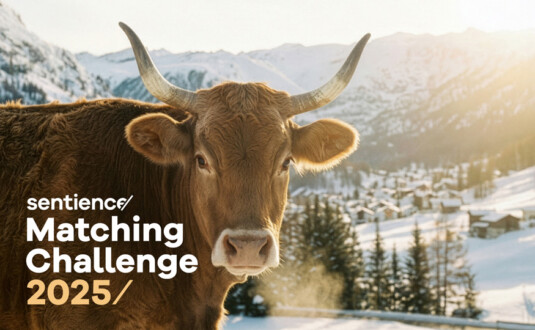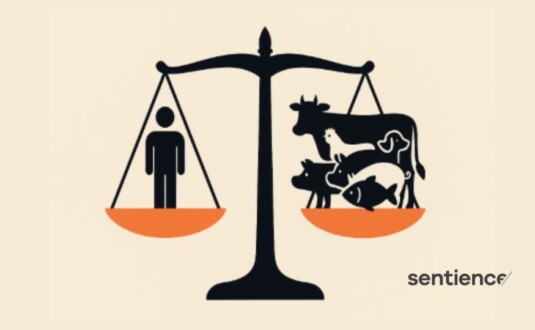Vague promises do not protect animals, transparency does
After examining Migros last week, Sentience is now turning the spotlight on Lidl to assess how well its practices align with the European Chicken Commitment (ECC), a scientific framework designed to reduce the suffering of broiler chickens.
To date, Lidl pledges that its fresh poultry complies with the STS Tierwohlrating of “at least level C” in order to appease consumers. In the supermarket aisle, this may seem reassuring; but key information is still missing. When a company does not publish basic husbandry practices such as maximum stocking density or slaughter methods, consumers are left to wonder: what could they be hiding?
Consumers can see the label on packaging, yet they remain in the dark about how chickens actually live and die. Without figures on stocking density, breed, living conditions or slaughter, Lidl Switzerland’s promises remain just that: promises.
Lidl Switzerland lagging behind its European counterparts
By contrast, Lidl France (2020) and Lidl Germany (2024) have both signed the European Chicken Commitment (ECC), which sets clear, higher welfare standards for chickens and holds companies accountable for their treatment.
Lidl’s commitments abroad prove that higher standards and clearer reporting are possible when the pressure is high enough. Why should consumers in Switzerland have to accept lower transparency and weaker protections for animals than their neighbours? In a country that prides itself on having the strictest animal-welfare legislation in the world, a retailer lagging behind its European counterparts looks out of place. It is time for Lidl Switzerland to match its European counterparts: with data, transparency and real accountability.
That’s why we need you. Your voice makes the difference – help us call on Lidl to raise their standards for chickens.
Lidl: progress in patches, silence on the essentials
Lidl shows positive signs in areas like legal compliance and certain environmental measures. However, major elements of chicken welfare remain unaddressed: stocking density limits are not disclosed, progress on auditing and reporting is minimal and, most importantly, there is no commitment to slower-growing breeds, the factor that drives the greatest amount of suffering.
Mentions of daylight and winter gardens point to some improvement, but without transparency on light levels, enrichments, air quality, or stunning methods, the overall picture remains incomplete. Collaboration with STS is promising, yet still far from an ECC-style annual progress report with detailed criteria. In short: there is progress in patches, and silence on the essentials.
Discover the full report on Lidl’ compliance with the ECC:
Why transparency matters
Transparency and accountability are the foundation of public trust. Consumers deserve to know how animals are raised, and not just to read that “chickens are treated well”. By staying silent on breed selection and living conditions, Lidl stays silent on chickens’ suffering.
The path is clear, we are asking Lidl to:
Stop relying on fast-growing breeds and vague claims.
Continue using STS guidelines and improving fresh poultry standards.
Start publishing the exact stocking density; lighting; perch/pecking standards; air quality metrics; slaughter method percentages across fresh, frozen and processed meat; by signing and committing to the ECC.
Words are not enough when transparency does not follow. Call on Lidl to back its promises with action.







No comments yet